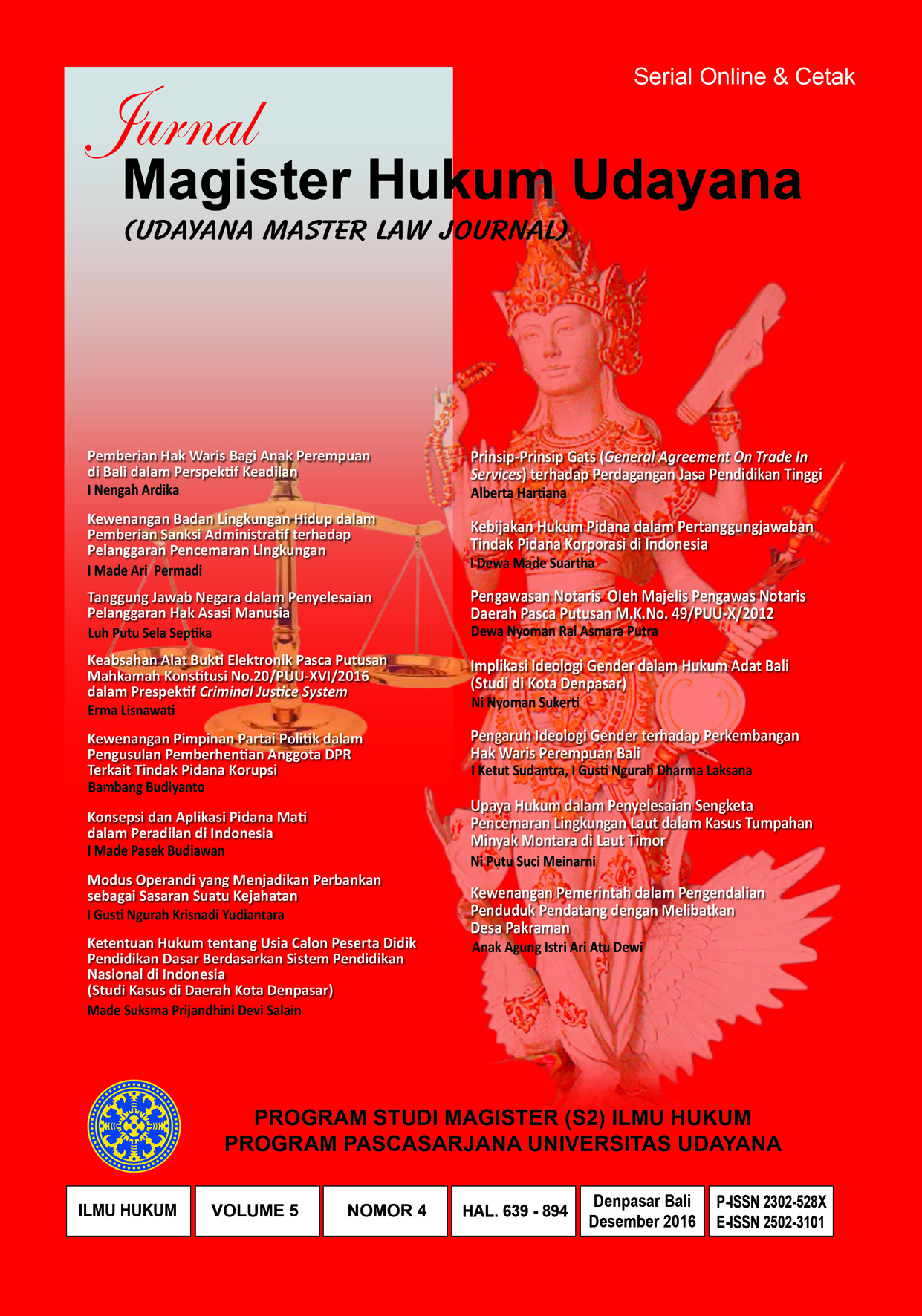KONSEPSI DAN APLIKASI PIDANA MATI DALAM PERADILAN DI INDONESIA
Abstract
Imposition of the death penalty by the judge in the criminal justice process Indonesia still remains a debate among groups that agread with the group that oppose it. But in some laws for special crimes such as terrorism, corruption, narcotics, psychotropic substances, and a human rights capital punishment is still regulated, as well as of the criminal code and the concept of the criminal code by 2015 capital punishment is still based. The existence of the group that did not agree with the conception and application of this dying, argued that human life bussiness, my God, not the man to lift the perspective of the scientific criminal law that a death penalty still exists in all criminal acts by perpetrators of crimes with widespread impact as well as detrimental to the wider community the research for criminal santions was important to examine the existence of the norms of law as a basic for corrector by maximum capital punishment in Indonesia.
Penjatuhan pidana mati oleh hakim dalam proses peradilan pidana Indonesia masih tetap menjadi perdebatan antara kelompok yang setuju dengan kelompok yang menentangnya. Namun dalam beberapa undang-undang tindak pidana khusus seperti terorisme, korupsi, narkotika, psikotropika dan peradilan hak asasi manusia pidana mati masih diatur, begitu juga KUHP dan konsep KUHP tahun 2015 pidana mati masih tetap dicanangkan. Adanya kelompok yang tidak setuju dengan konsepsi dan aplikasi pidana mati ini berdalih bahwa nyawa manusia menjadi urusan Tuhan, bukan menjadi kewenangan manusia untuk mencabutnya. Perspektif keilmuan hukum pidana bahwa pidana mati masih eksis untuk diberlakukan sepanjang tindak pidana yang dilakukan pelaku menyangkut kejahatan luar biasa dengan dampak luas serta merugikan masyarakat luas. Penelitian terhadap sanksi pidana mati penting dilakukan guna meneliti keberadaan norma hukum sebagai dasar pembenar dijatuhkannya pidana mati ini di Indonesia.
Downloads
Keywords
Jurnal Magister Hukum Udayana (Udayana Master Law of Journal) by Faculty of Law Udayana University is licensed under a Creative Commons Attribution-NonCommercial 4.0 International License.



















